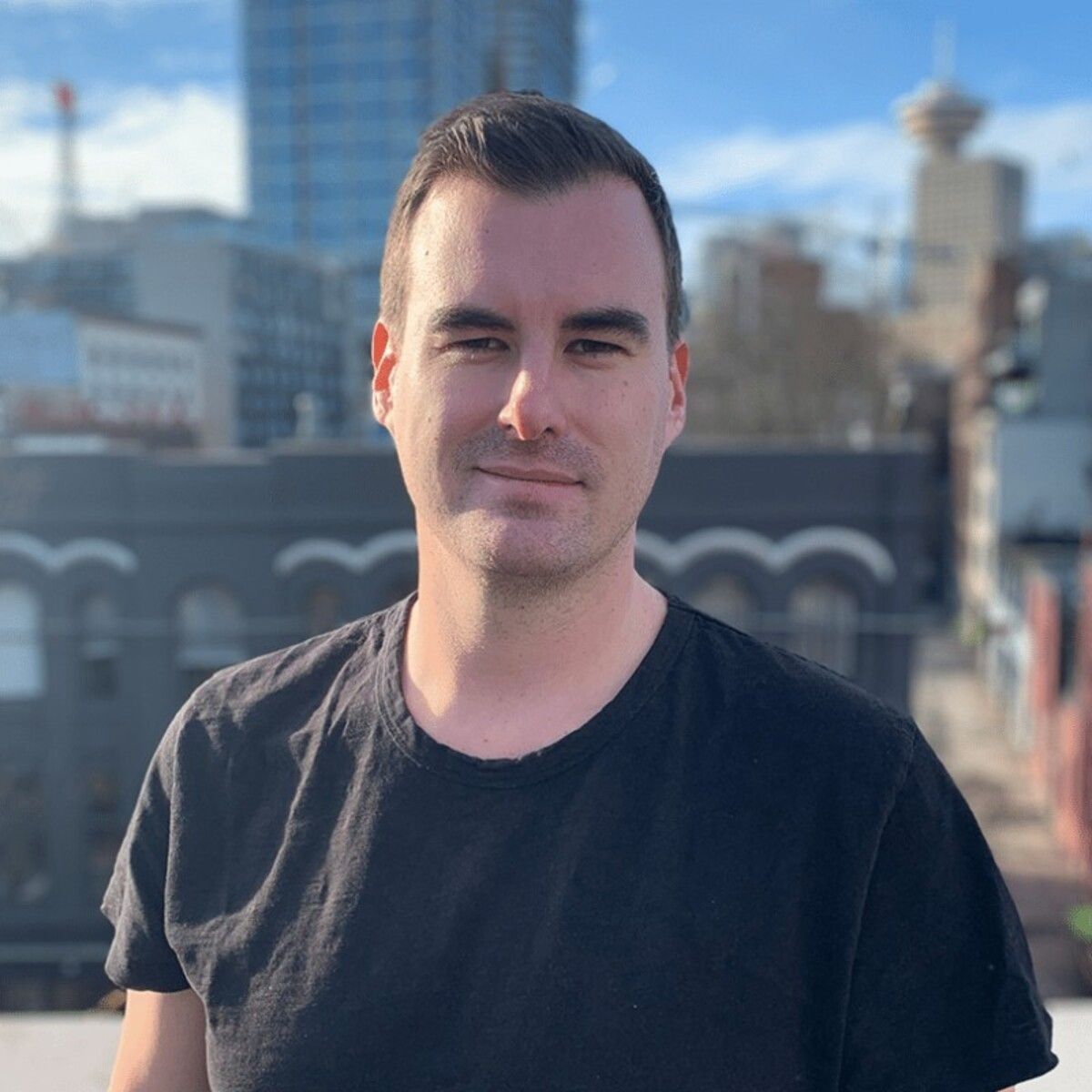Hello {{First name|Predictable Revenue community}},
Book update: 7 reviews on Amazon is awesome and not enough so I have an interesting offer for you… see the next update 👇
VC List update: big thanks to everyone who jumped on the call, provided feedback, or just had a browse around. I’ve improved the speed of the search, added the ability to search by similarity to a portfolio company, and added the ability to save companies to a list. Until the end of November, anyone who buys a book and posts a review (amazon or linkedin) will get 3 months of premium access to vc list. Hit me back with a screenshot of your review and I’ll get you in. Here’s the book link ICYMI.
Onto the newsletter…
I had a call with a couple of founders who lost a $200K deal this week.
They made it to the final three. Went head-to-head with two very well-funded competitors. The CTO loved their product. But the line managers and ICs wanted something more "fully featured."
The deal went to someone else.
And you know what? Those founders did everything right. In fact, they did a great job.
I know that sounds insane. How can you do everything right and still lose? Because in sales, outcomes don’t tell the whole story - but process doesn't.
The Poker Player's Secret to Managing No's
Annie Duke, the former professional poker player, wrote a book called How to Decide where she makes a critical distinction: you're not an outcomes collector, you're a process optimizer.
In poker, you can make the mathematically correct decision and still lose the hand. You can go all-in with pocket aces and lose to someone who got lucky on the river. A bad player can win with terrible cards, and a great player can lose with perfect odds.
The quality of your play isn't measured by whether you won the hand - it's measured by whether you made good decisions given the information you had.
Sales works exactly the same way.
When you're evaluating a lost deal, the question isn't "Did we win?" The question is: "Did we follow a strong process? Are we better now than we were three months ago?"
Because deals fall apart for reasons completely outside your control:
Their buying cycle happened to end in November instead of March
Internal politics shifted priorities
Budget got slashed
A key champion left the company
They needed features you're building but don't have yet
What a Strong Process Actually Looks Like
Here's what the founder who "lost" that deal actually did right:
They ran thorough discovery. They multithreaded across the organization. They got the CTO excited enough to champion the product internally. They collected feedback from line managers. They made it to a competitive bake-off with two major players in the space.
Six months earlier? They weren't even getting these meetings.
That's what progress looks like. Not the outcome - the elevation of your game.
When I worked with sales teams, I’d see this all the time. A rep would close a huge deal and think they were a sales god. Then they'd go three months without closing anything and spiral into self-doubt.
Neither extreme was true.
The rep who closed that big deal might have just gotten lucky with timing. The rep in a slump might have been running perfect discovery but hitting prospects during budget freezes.
If you evaluate yourself on outcomes, you'll make yourself crazy. If you evaluate yourself on process, you'll get better every single week.
The 24-Hour Rule for Processing Loss
Look, I'm not saying you can't be upset when you lose a deal. You absolutely should feel disappointed - especially when you came close.
But here's what separates founders who build momentum from founders who stall: they set a time limit on being upset.
I like to give myself a 24 hour “act like a giant baby” period where I get to mope, complain, and act like a petulant toddler. Once my baby timer is up, it’s time to move on.
Because when you can't let go of losing a deal, something dangerous happens to your sales motion. You start playing tight. Overcompensating. Making decisions from a place of fear instead of confidence.
In hockey, we have a term for this: gripping the stick.
When a young player gets frustrated by a bad run of luck they start holding their stick a little bit too tight. And when your hands are tense like that, everything breaks down. Your passes are off. Your shot has no touch. You're thinking instead of reacting.
You can see it when it happens. A player who was fluid and confident suddenly looks like they couldn’t receive a pass to save their life.
The same thing happens in sales when you take no's personally.
You start hesitating on follow-ups because you're afraid of hearing another no. You pitch too hard on the next demo because you're desperate to prove yourself. You second-guess the process that was working and start changing things randomly, hoping something will click.
You're gripping the stick.
And here's the worst part: gripping the stick doesn't just hurt your performance on the next deal. It creates a compounding effect. One bad call leads to overthinking the next one. That overthinking makes you stiff and unnatural. That stiffness kills your conversion rates. Those poor conversion rates make you grip even harder.
The solution is easy, give yourself permission to act like a big baby but then move on.
The Difference Between "No" and "Not Yet"
Here's something most founders miss: there are three types of no's, and only one of them actually matters.
Hard No: Wrong ICP, no fit, will never experience the pain you solve. Move on immediately.
Not Right Now: Timing, budget, bandwidth issues. Follow up quarterly.
Not Yet: They love what you're building, but you're not mature enough yet. This is actually a buying signal for 6-12 months from now.
That founder who "lost" the $200K deal? The CTO literally said: "I'd love to see another demo in 9-12 months to see what progress you've made."
That's not a loss. That's a future customer telling you what to build next and when to follow up.
Most founders never follow up. They take "not yet" as rejection and move on. Then they wonder why they're not building momentum.
But the founders who build repeatable revenue engines? They follow up religiously. They run monthly and quarterly nurture sequences. They stay top of mind. And when that prospect is ready - when their budget gets approved, when their current tool contract expires, when their priorities shift - guess who gets the call?
The Sales Lag That Kills Pipelines (And How to Fix It)
Here's the part that will save your Q1 2025: the work you do today doesn't show up in your pipeline for 60-90 days.
Prospecting → meetings → discovery → demos → trials → decisions. Every single one of those steps takes time.
Which means the meetings you're booking in January are the result of prospecting you did in November. The deals you'll close in February are built on the relationships you're nurturing right now.
And here's where founders sabotage themselves: when they feel busy, they stop prospecting. When pipeline looks healthy, they ease up on follow-ups. When the holidays hit, they mentally check out.
Then January comes, and the pipeline is empty.
I ran an outbound agency for over a decade. Every year, half our clients would pause their campaigns in December. "Prospects don't buy over the holidays," they'd say. "Let's start fresh in January."
You know what happened?
The clients who paused had terrible Q1s. Slow Januaries, weak Februaries. It took until mid-Q1 to rebuild any momentum.
The clients who kept their campaigns running? They had mediocre Decembers - but strong Januaries. Because all those follow-up emails were sitting in prospect inboxes on January 2nd. All that pipeline pressure was already built.
The difference wasn't luck. It was understanding the lag.
You don't need to go hard during the holidays. But you absolutely cannot go to zero.
The Real Win in Every "Loss"
Those founders who lost the $200K deal? They learned they can compete with well-funded competitors. They learned what enterprise buyers need to see. They learned their CTO-level messaging works. They got detailed feedback on product gaps to close.
And they proved to themselves they can run a strong sales process under pressure.
Those lessons don't show up in revenue this quarter. But they compound. Six months from now, those founders will close a similar deal because of what they learned here.
That's how you build a sales engine. Not by chasing wins. Not by getting lucky. By improving your process, managing your emotions, and staying consistent when everyone else gives up. You're going to lose deals. That's guaranteed. The question is: are you going to let those losses derail you, or are you going to use them to get better?
Because the founders who win in the long run aren't the ones who never lose - they're the ones who never stop improving their process.
Collin
PS - If you're a founder struggling with pipeline consistency heading into 2025, reply to this email. I'd love to hear what's working (and what's not) in your sales process right now. If there’s enough interest, I’ll set up a group call to chat about building out your 2026 sales plans.
PPS - The Terrifying Art of Finding Customers is in stores now, I signed a few legitimately this week. If you’re in Vancouver, Indigo on Granville only has a few left.


